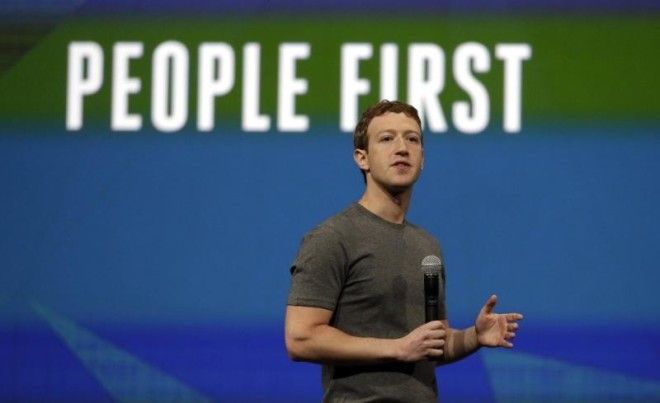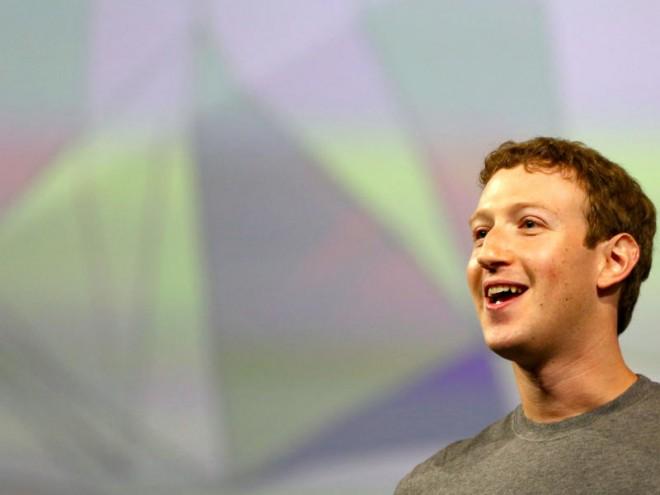It has made Mark Zuckerberg into a legendary figure, and turned a hoodie and tennis shoes the height of tech industry fashion.
These days, Facebook is worth $265.3 billion, with over 1.5 billion people using the site every month.
Here's the story behind Facebook's insane growth, from February 2004 through today.
Spoiler alert: It involves a lot of beer.
Facebook got its start at Harvard's Kirkland House dormitory.
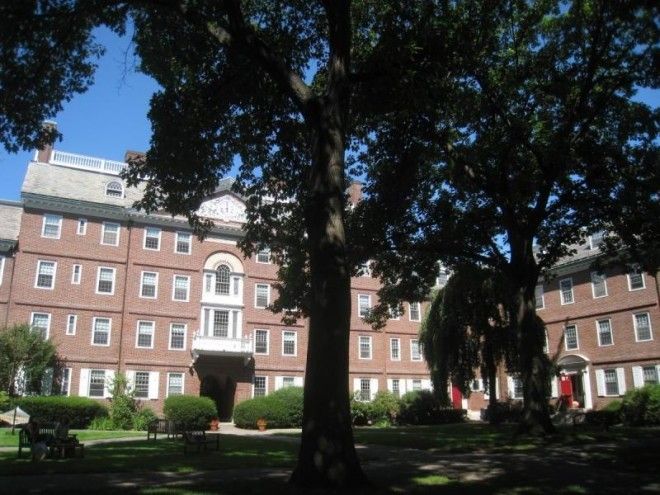
In 2003, Harvard sophomore Mark Zuckerberg would build a program called "Face mash." It was a Hot or Not-style app using the pictures of his classmates that he hacked from the school administration's dormitory ID files. It got 22,000 page views from 450 people in the first four hours it was up. A few days later, Harvard ordered it to be taken down, citing copyright and security concerns.

Zuckerberg faced disciplinary action from Harvard, but was allowed to stay at the school. Undeterred, he launched Facebook on February 4, 2004.
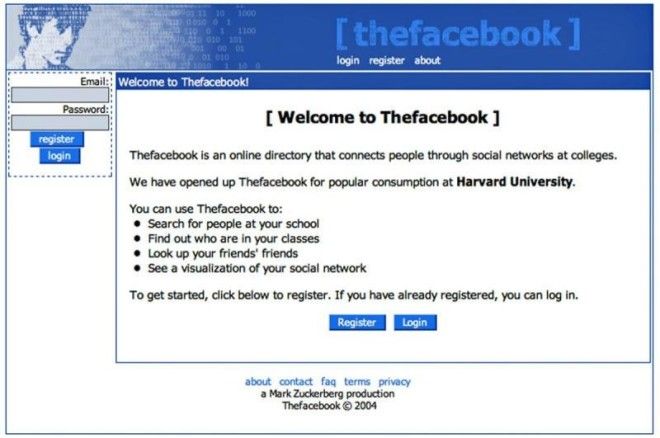
Six days after the launch, three Harvard seniors — twins Cameron and Tyler Winklevoss and Divya Narendra — claimed that they had reached an agreement with Zuckerberg where he would create a website called HarvardConnection.com for them, but he abandoned them and used his own ideas to create Facebook.
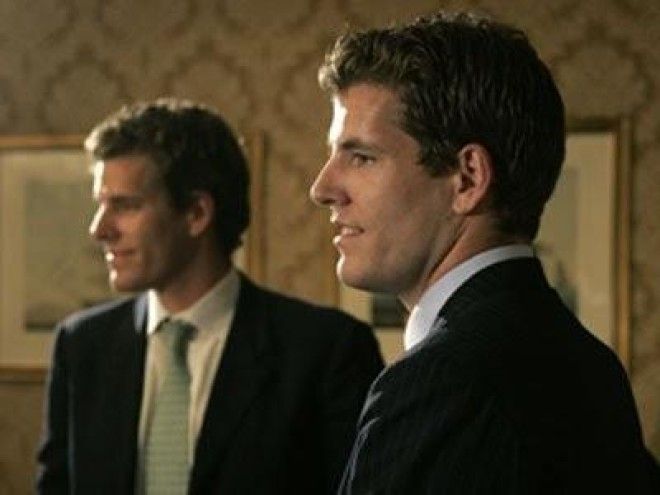
They'd go on to file a lawsuit that was only settled in 2008, when they were given 1.2 million Facebook shares in a settlement. Those shares would be worth $300 million when Facebook had its IPO.
Within a month, half of Harvard's students were members of Thefacebook. By March 2004, it had expanded to Yale, Columbia, and Stanford universities. Zuckerberg brought in fellow Harvard students Dustin Moskovitz (left), Eduardo Saverin, Andrew McCollum, and Chris Hughes as cofounders to help manage that growth and keep building the site into a business.
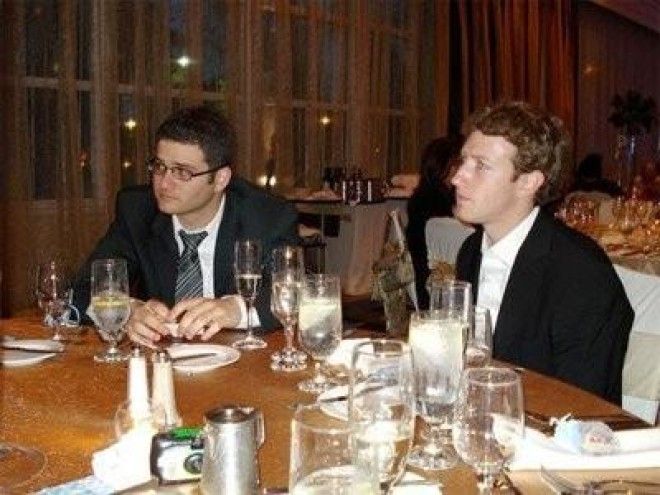
Facebook's first ad sales pitch deck came out just a few months after the launch, and showed the site's amazing early growth — and its limited functionality.
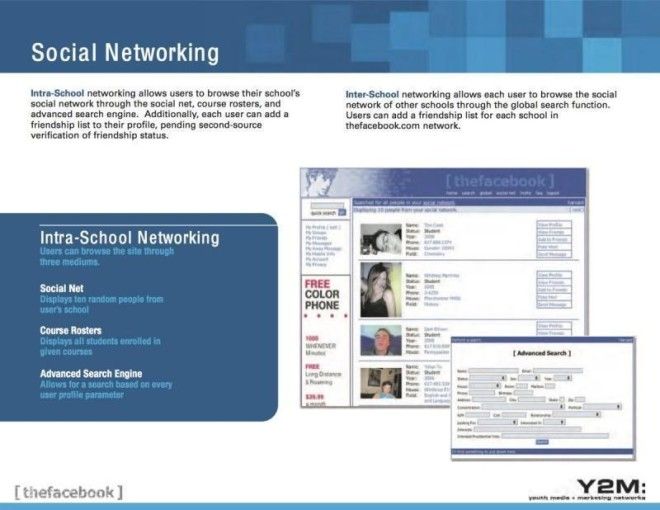
At this point, Facebook was still run out of his dorm room, but it was time to get serious. Zuckerberg dropped out of Harvard in 2004, much like Bill Gates before him.
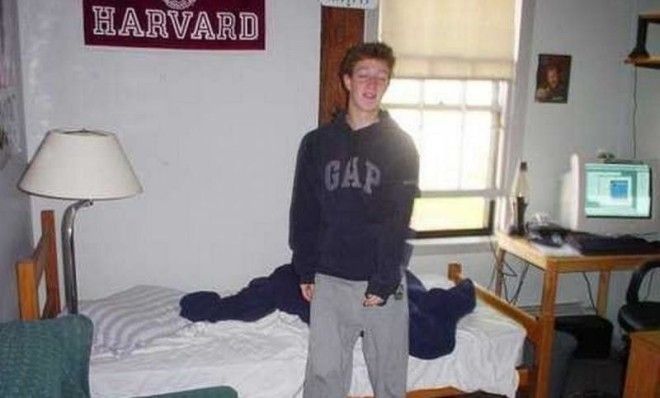
In mid-2004, Zuckerberg hired Napster cofounder Sean Parker as the company's first president.
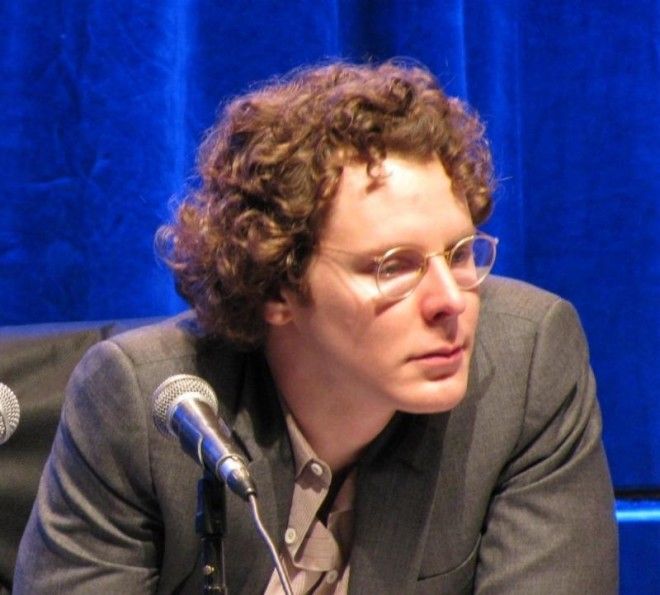
Around the same time, in June 2004, Facebook moved to Palo Alto, California, into a tiny office downtown. Back then, the company was known for being as much a party hub as it was a serious startup.
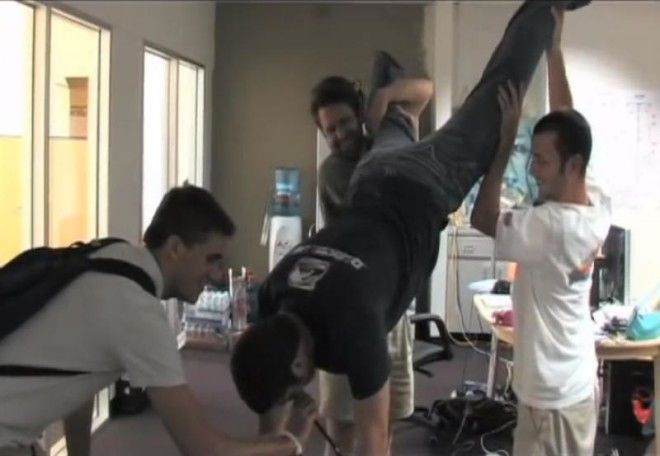
That office, right in downtown Palo Alto, was incredibly unassuming. See that glass door, No. 471? That led to a set of stairs that would take you up to the space. I briefly worked for a company that would use the same office space, years later. There's a good sushi place around the corner.
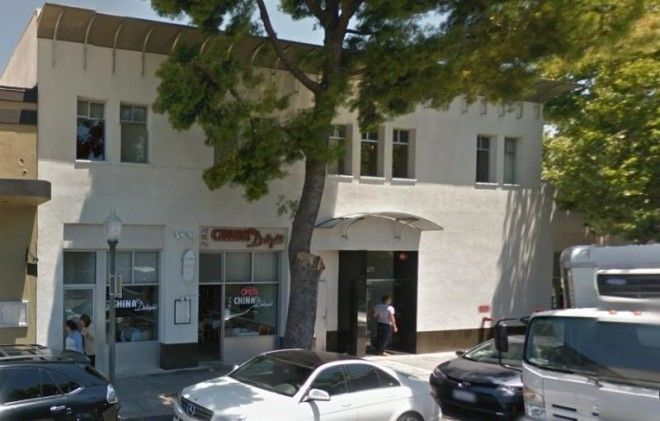
Mark Zuckerberg would often hang out in the office in shorts, barefoot and with a beer in hand.
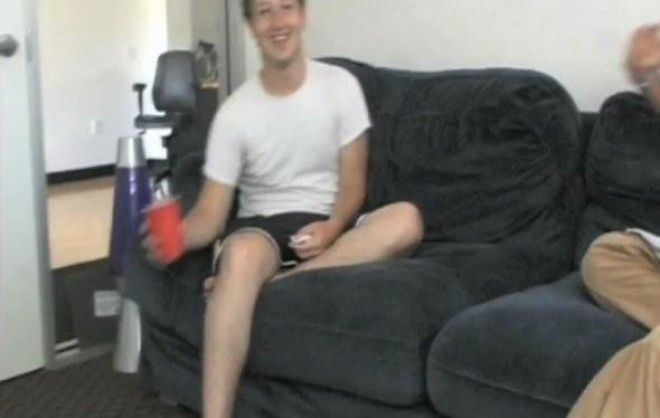
No, seriously, they loved beer. Here's Andrew McCollum with a lady friend while a Facebook employee gets beer from the office keg.
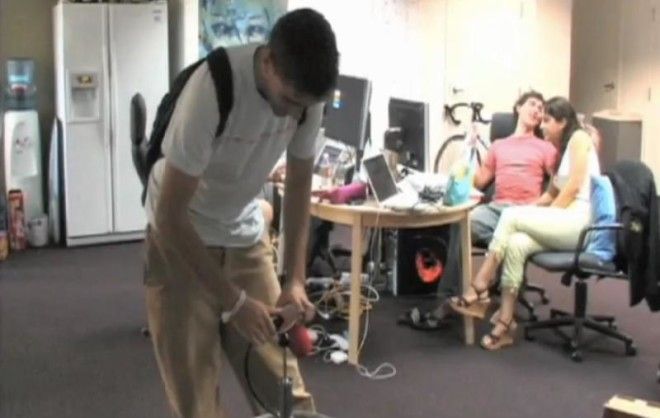
That office was also well-known for having risqué graffiti art on its walls.

The same month it moved into these offices, Facebook got its first outside funding in the form of a $500,000 investment from famed ex-PayPal executive Peter Thiel (left, with fellow PayPal exec and later Tesla founder Elon Musk).
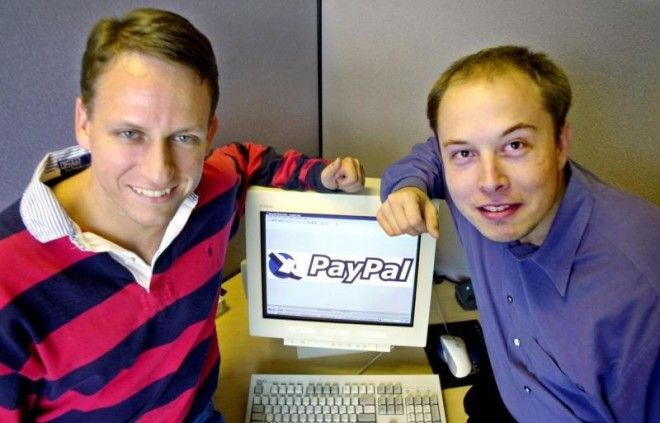
By this point, Facebook was starting its rapid ascent toward cultural superstardom. In May 2005, Facebook raised $13.7 million in funding. In 2006, Facebook created its iconic and breakthrough News Feed, which gave people a real-time stream of what their friends were doing.
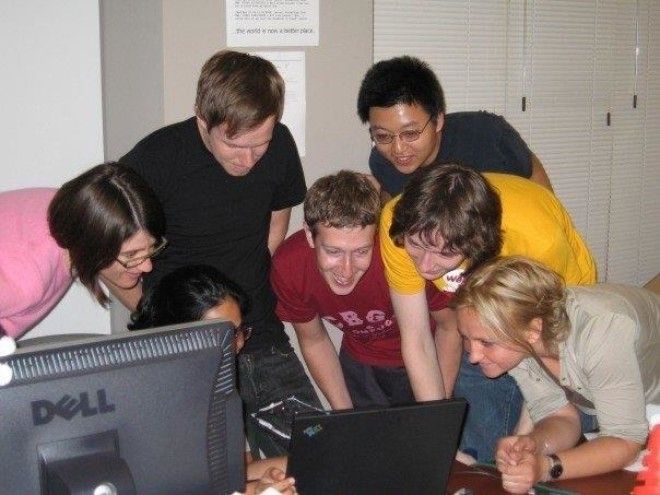
Mark ZuckerbergThe early Facebook team pushes the button to launch the News Feed into the site.
In late 2007, Zuckerberg met a Google executive named Sheryl Sandberg at a Christmas party. At the time, she was considering taking a new position with The Washington Post. But after meeting Sandberg, Zuckerberg decided that Facebook needed a chief operating officer, and managed to convince her to come aboard in early 2008.
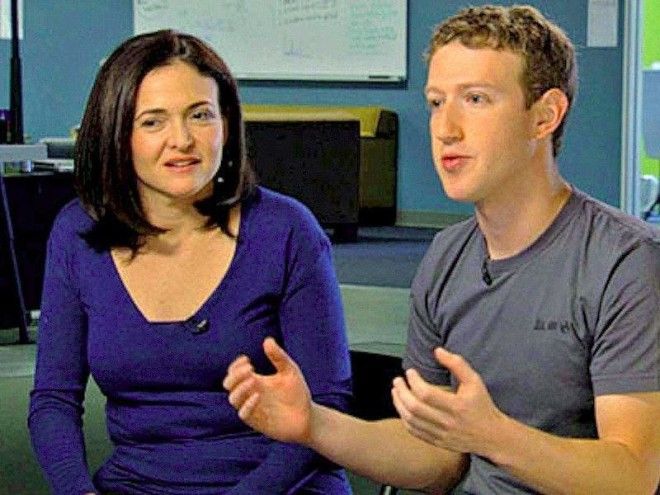
It was a prescient hire. Facebook was already growing quickly, but the rise of the smartphone brought with it a lot more users. In 2009, Facebook moved into a slightly larger Palo Alto office in the Stanford Research Park, amid explosive growth. By late 2010, it hit a trillion page views a month.
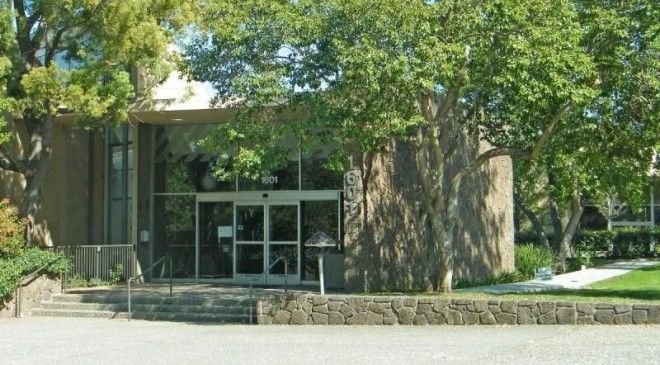
That space wouldn't hold Facebook for long. In 2011, the social network moved into a corporate campus once occupied by Sun Microsystems, which had fallen from grace and been acquired by Oracle.
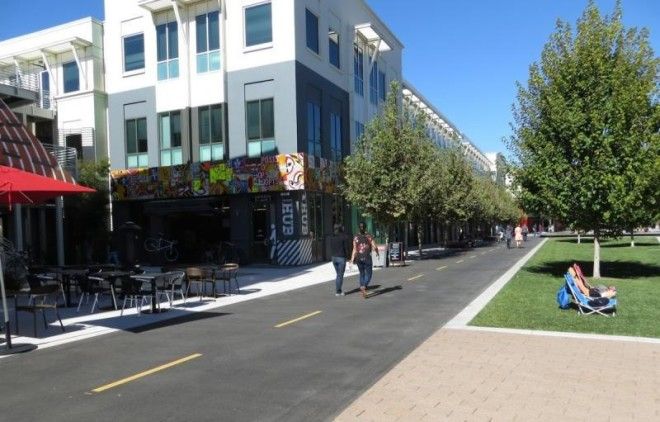
Facebook even established the main thoroughfare of the campus as "Hacker Way," referring to Zuckerberg's famous philosophy of the same name: "Move Fast and Break Things."
Advertising
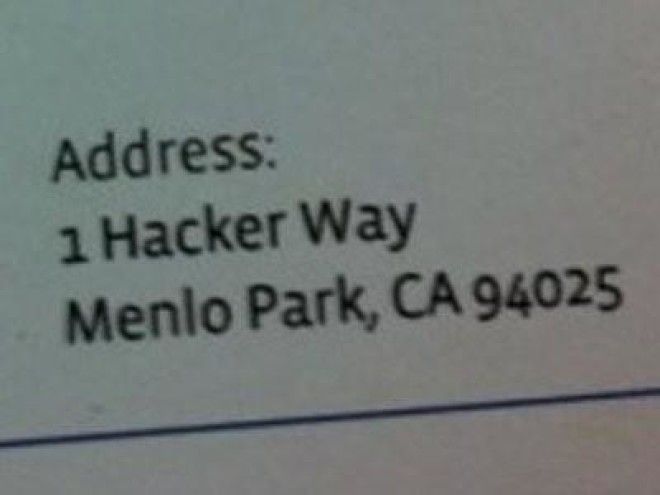
Facebook had also established itself as a major political power at this point. That was perhaps most prominent in February 2011's Egyptian uprising, which was largely organized via social networking sites like Facebook.
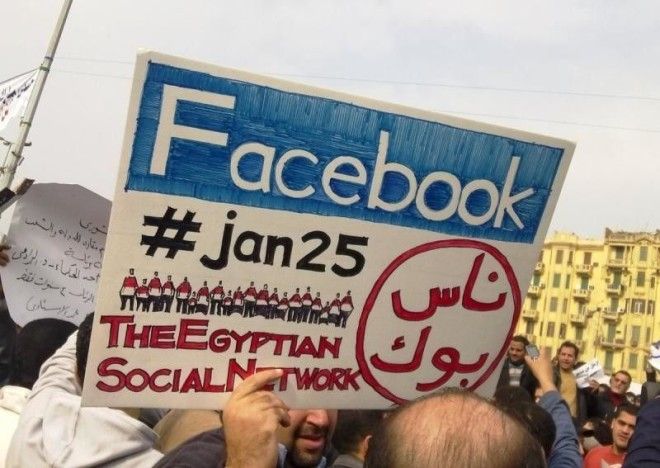
The 2011 Egyptian protests.
On the flip side, Zuckerberg himself has only gotten more involved in politics over the years, and has spoken to world leaders in support of spreading internet access all over the globe.
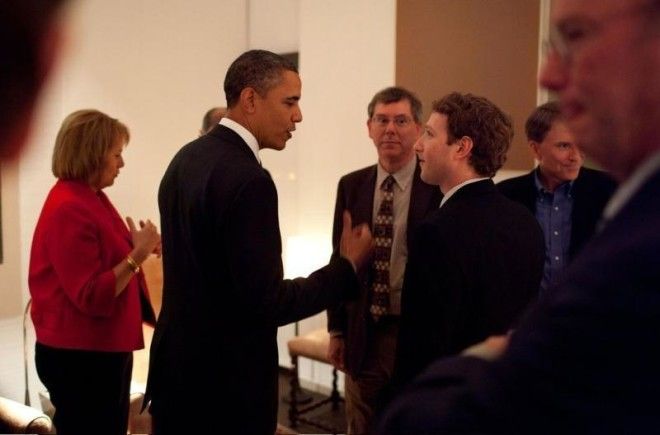
US President Barack Obama (left) with Mark Zuckerberg.
Facebook has also long been a proponent of marriage equality and equal rights.
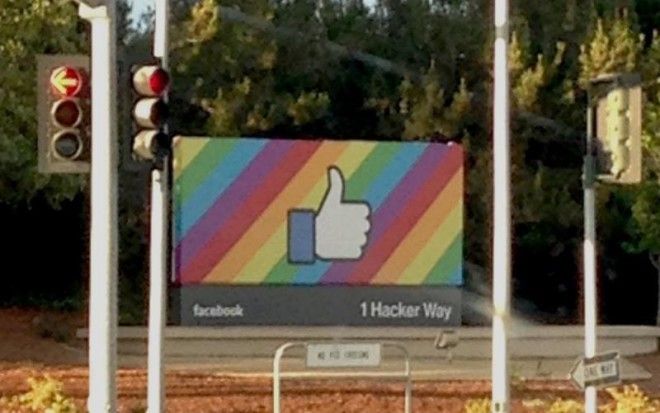
Facebook Rainbow Pride HQ sign.
The social network became unstoppable. Facebook had its historic $5 billion initial public offering May 22, 2012.
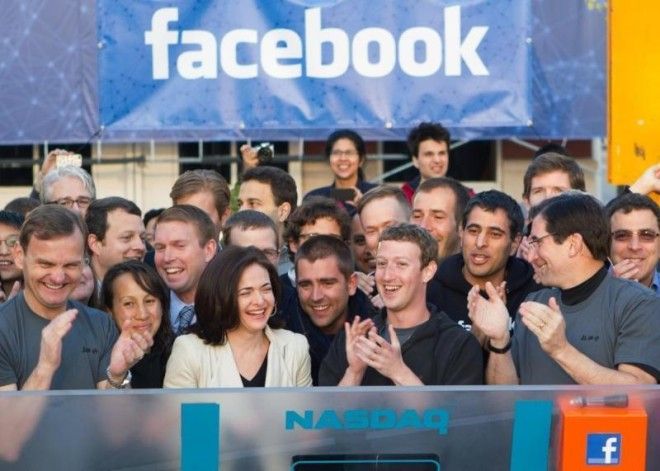
Starting that same year, in 2012, Facebook employees were given the legendary "Little Red Book," a book of propaganda-like slogans to make sure that the growing company's employees were all on the same page.

Later in 2012, Zuckerberg somehow found the time to marry his long-time girlfriend Priscilla Chan, whom he met while still a Harvard student.
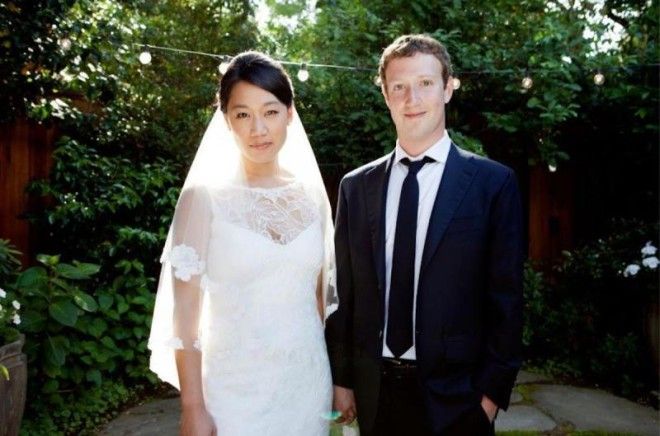
Facebook is always on the lookout for the next startup that threatens to disrupt it. So the company has snapped up a bunch of hot startups along the way, including photo-sharing service Instagram, which it bought for $1 billion in 2012 and now has more than 400 million users; ...
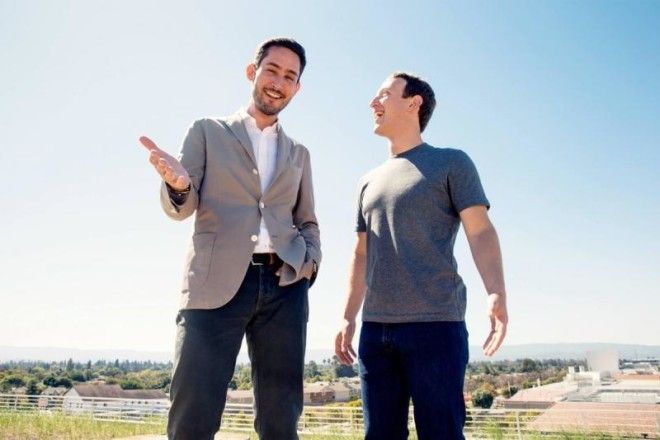
... early-stage virtual-reality company Oculus, which Facebook bought in March 2014 for $2 billion; ...
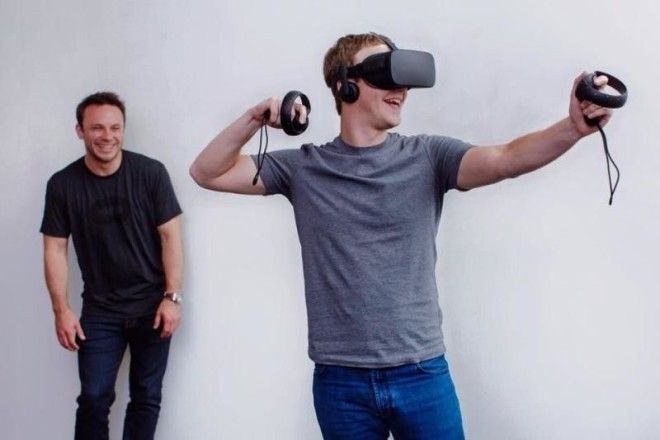
... and mobile-messaging company WhatsApp, which Facebook paid a whopping $19 billion for in February 2014. Its cofounder, Jan Koum, is now a Facebook board member and the service now has more than 900 million users.
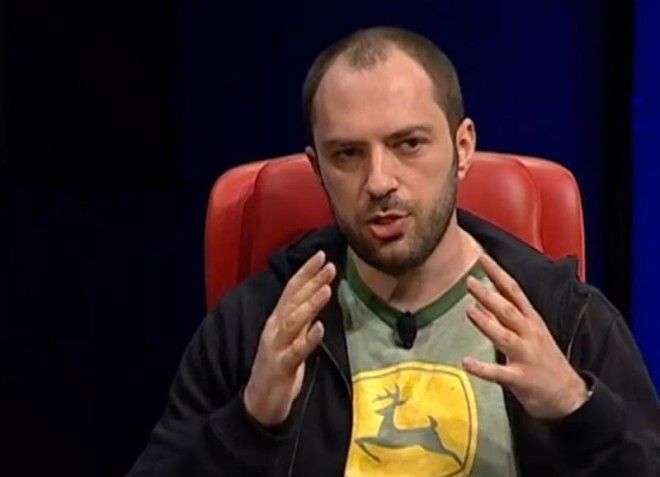
By the time Facebook turned 10 on February 3, 2014, over 1.23 billion people were visiting the social network every month — a billion of them on their mobile devices. The world had changed, but Facebook just kept growing.
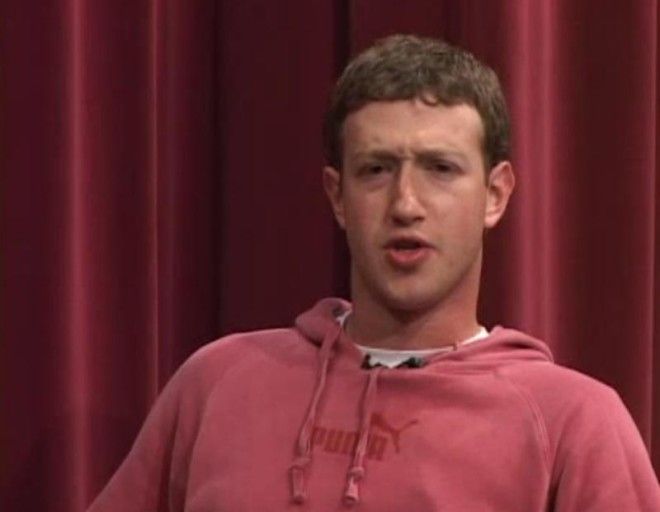
To support all that growth, Facebook had to expand its offices. Just this year, Facebook opened a new campus, designed by legendary architect Frank Gehry, to support over 2,800 employees.
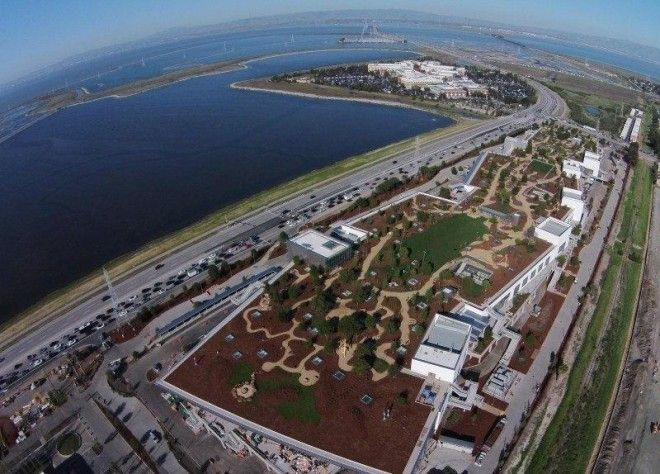
Whatever happens next, the company remains powered by Zuckerberg's mission to connect everybody in the world. As he put it in a letter to investors in Facebook's IPO filing, "Simply put: we don't build services to make money; we make money to build better services." And Zuckerberg has control of the company thanks to its dual-class share structure — that is, even if other people own more shares than he does, his shares have more votes — so that won't change anytime soon.
